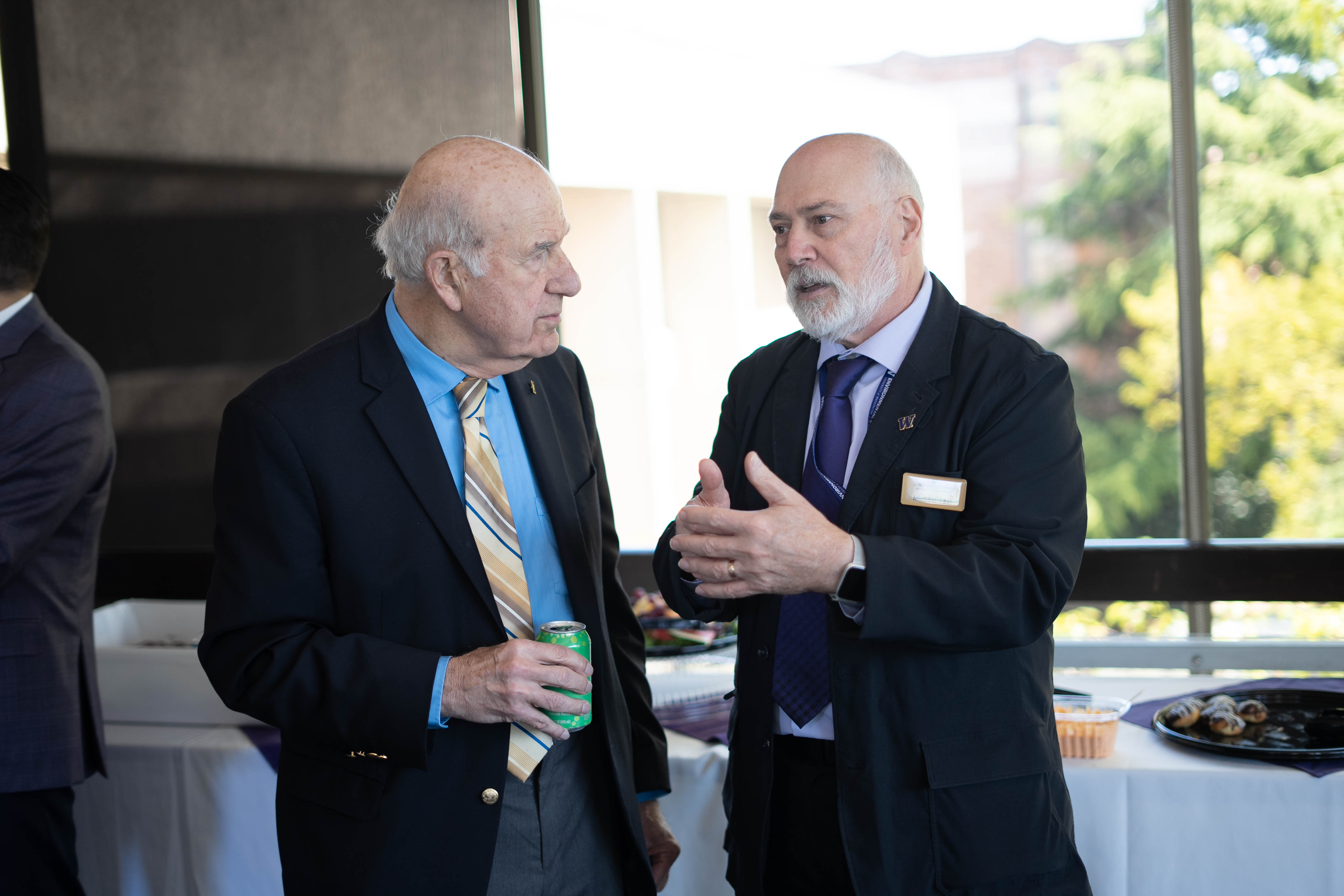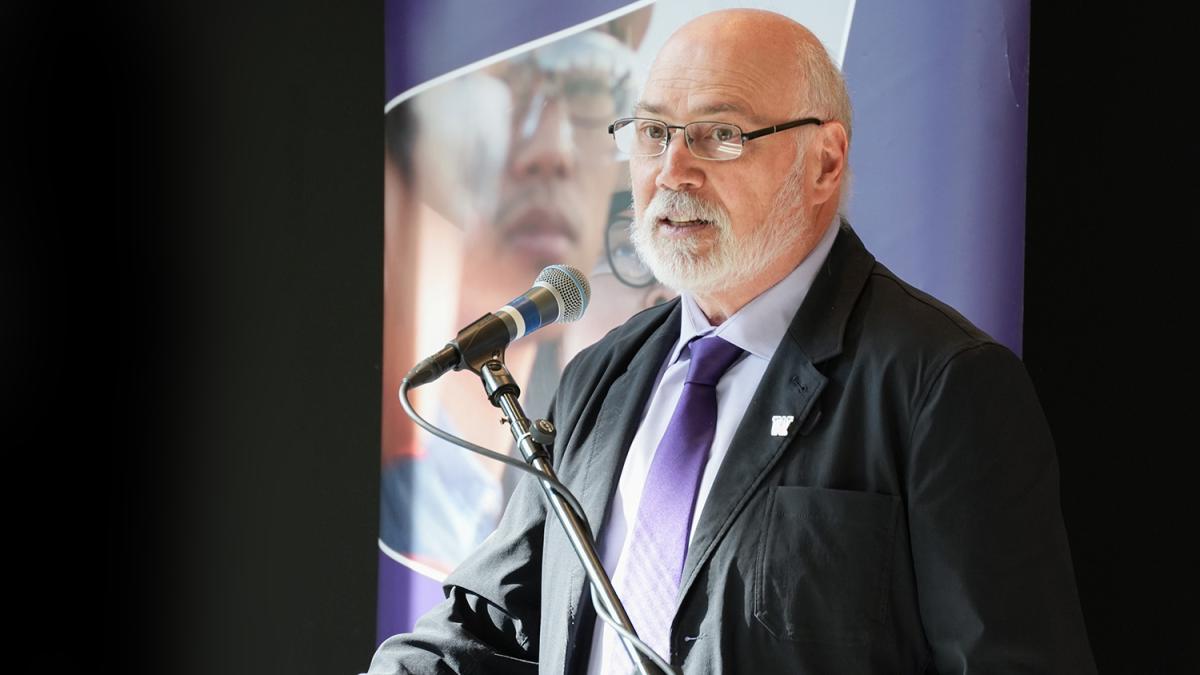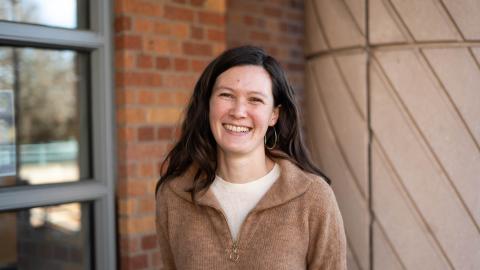Editor's note: Professor Michael Yost stepped down as chair of the UW Department of Environmental & Occupational Health Sciences (DEOHS) at the end of August 2024, after serving a 10-year term. He retired August 1, 2025. We caught up with him as he ended his chair position to reflect on his time leading the department.
You’ve guided the department through a remarkable amount of change during the past 10 years. What are you most proud of?
In the past 10 years, there’s been a sea change in our department. More than half of our faculty have retired, and we’ve brought on a new generation of faculty with incredible expertise; we’ve modernized and consolidated our lab spaces to build capability and collaboration; we’ve restructured our undergraduate and graduate programs; and we’ve weathered a pandemic.
Any one of these things would be a big change, but all of them at once — it’s been a remarkable demonstration of the resilience and adaptation that our community can achieve.
You’ve managed the ship through so much.
It's not me, per se, it's me listening and working with the people around us. I have the view that this is a collective, a village, and my job is not necessarily to be the singular point of contact. My job is to allow the village to adapt and to facilitate that, to work with people to use their knowledge and their skills to help solve problems.
People talk about having a North Star. For me, as long as I keep in mind that what I’m trying to do is to build a community of people that is resilient, adaptable, energized and committed to working with each other, then it's all going to be okay. The future looks very bright.
“The important piece is to see how these things all connect to people and the ecosystem we live in. That's what environmental health does best”
- Michael Yost
Who has influenced you in your career?

Of all the people I worked with, former UW School of Public Health Dean Gil Omenn has had an outsized influence. I’d like to thank him for always giving me a nudge to do better, and encouraging us to try new things in the department. My PhD adviser, Bob Spear at University of California Berkeley, has also had a profound influence on me.
What do you think is coming up on the horizon for the field of environmental health?
I think that microplastics are the new heavy metals. When I was just starting as a graduate student, lead and other heavy metals were emerging as a big deal. They're very important toxicants, they're very persistent. We've been involved in showing the impacts that these things have had for decades.
Now we’re just starting to understand just how much impact microplastics have. How they can carry chemicals. They turn out to be time-release capsules that are all over the environment, and they get everywhere. They're in everybody's body. It’s a completely unintended consequence, and it's also almost completely unexplored. We're just at the point where we can start to measure impacts.
What other themes do you see influencing the field?
I also think sustainability and social determinants of health are extremely important factors shaping the future of our field. Looking at the total impact of creating things and using them — how we produce food, how we ship things around the world — demands that we think in a longer, more sustainable frame.
We know that society has historically created disparities in people’s exposure to environmental stressors and so many other factors that influence our health. It is important to recognize that we have the ability and capacity to provide opportunities for people and to address the fact that we've not been fair to a lot of the world and to each other, and that we should try to do better.
What are you looking forward to in the next stage of your career?
The PNASH Center is very important to me, and I’m thinking a lot about the future of agriculture. I recently gave a keynote talk at the International Society for Agricultural Safety and Health conference, where I shared how the farms of today are not like the farm I grew up on, picking fruit.
I asked an AI tool to show me a picture of what a future orchard might look like 50 years from now. What came out looked really cool, and really high tech. But there were no people in the picture. We need to pay attention to where the people are and their role in the workplace.
At PNASH now, we're focused on what are hopefully positive aspects of technology, like smartphone apps that can provide pesticide information in multiple languages or real-time weather data to limit heat and smoke exposure. There's been a constant evolution of technologies and ideas, but people ultimately are behind it. We can't remove that human element.
The important piece is to see how these things all connect to people and the ecosystem we live in. That's what environmental health does best.
DEOHS Professor Lianne Sheppard will be serving as interim chair beginning in September. Do you have any words of wisdom for her and the department?
I’m excited for her to start. When I was first named chair, it was toward the end of an academic year, and I bumped into Lianne at our graduation party. We were talking about all the new possibilities for the department, and I asked her to be an assistant chair.
She made a lot of important contributions to where we are today. She was willing to invest her time, energy and effort into thinking about what would put us in a better place in the future. I think this is a fitting bookend to that. We both believe that leadership is about being a custodian, and having stewardship as your guiding principle.




